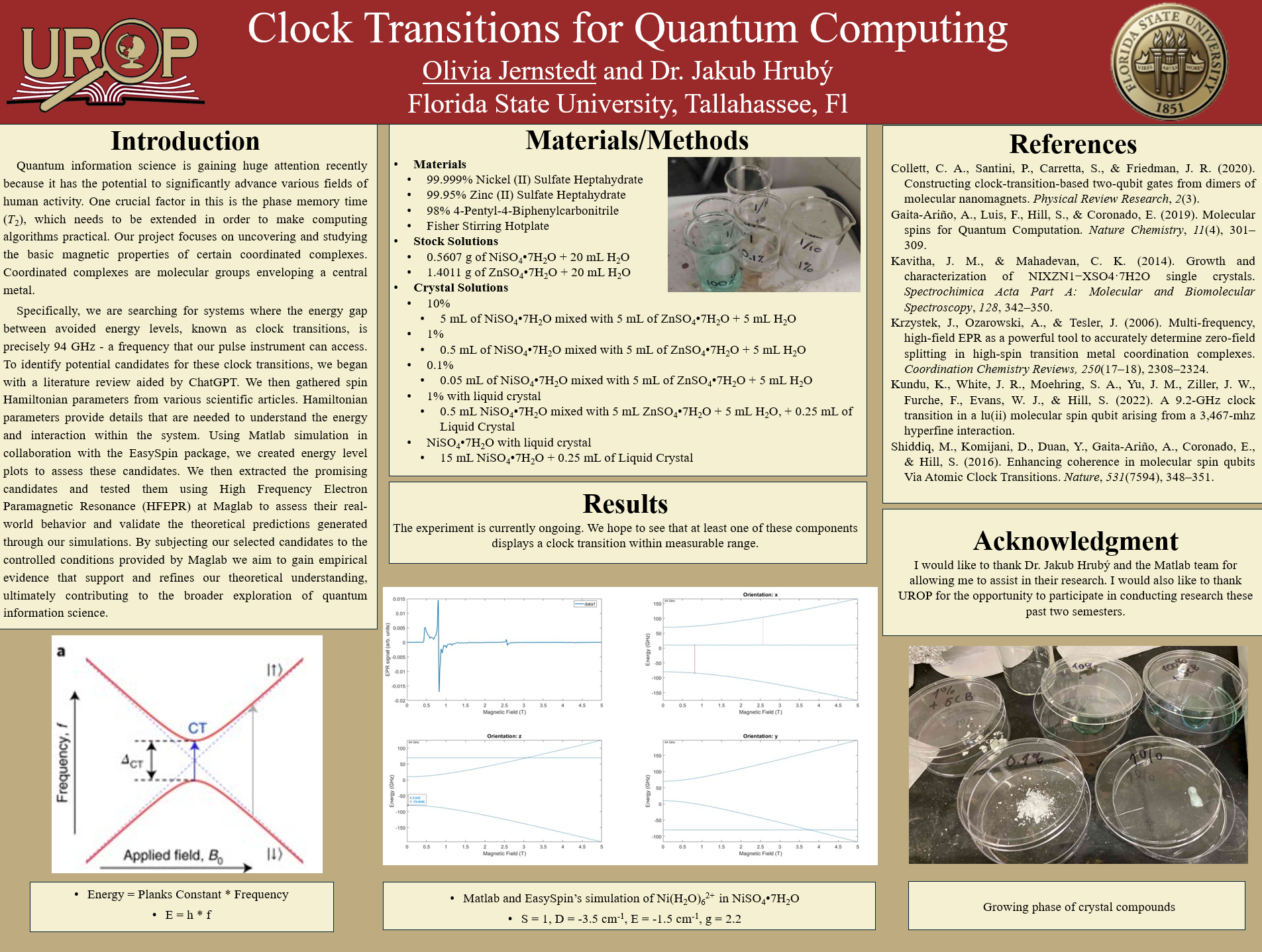Research Symposium
24th annual Undergraduate Research Symposium, April 3, 2024
Olivia Jernstedt Poster Session 5: 4:00 pm - 5:00 pm/305

BIO
My name is Olivia Jernstedt and I was born and raised in Cape Coral, Florida. I am expecting to graduate from Florida State University in Fall of 2024 with my bachelors degree at the age of 20. I am then going to attend a medical school and pursue a career as a trauma surgeon. I intend to conduct further research throughout my career to aid in medical advancements.
Clock Transitions for Quantum Computing
Authors: Olivia Jernstedt, Jakub HrubyStudent Major: Interdisciplinary Medical Sciences for Preclinical Professions
Mentor: Jakub Hruby
Mentor's Department: Maglab Mentor's College: Physics Co-Presenters:
Abstract
Quantum information science is gaining huge attention recently because it has the potential to significantly advance various fields of human activity. One crucial factor in this is the phase memory time (T2), which needs to be extended in order to make computing algorithms practical. Our project focuses on uncovering and studying the basic magnetic properties of certain coordinated complexes. Coordinated complexes are molecular groups enveloping a central metal.
Specifically, we are searching for systems where the energy gap between avoided energy levels, known as clock transitions, is precisely 94 GHz - a frequency that our pulse instrument can access. To identify potential candidates for these clock transitions, we began with a literature review aided by ChatGPT. We then gathered spin Hamiltonian parameters from various scientific articles. Hamiltonian parameters provide details that are needed to understand the energy and interaction within the system. Using Matlab simulation in collaboration with the EasySpin package, we created energy level plots to assess these candidates. We then extracted the promising candidates and tested them using High Frequency Electron Paramagnetic Resonance (HFEPR) at Maglab to assess their real-world behavior and validate the theoretical predictions generated through our simulations. By subjecting our selected candidates to the controlled conditions provided by Maglab we aim to gain empirical evidence that support and refines our theoretical understanding, ultimately contributing to the broader exploration of quantum information science.
Keywords: Clock Transitions, Quantum Computing, Electron Paramagnetic Resonance


